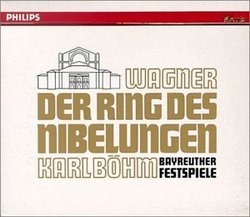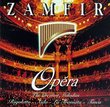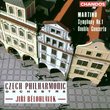| All Artists: Wagner, Nilsson, Rysanke, Bohm, Bfo Title: Richard Wagner: Der Ring des Nibelungen Members Wishing: 1 Total Copies: 0 Label: Polygram Records Release Date: 7/16/1990 Genre: Classical Styles: Opera & Classical Vocal, Historical Periods, Modern, 20th, & 21st Century Number of Discs: 14 SwapaCD Credits: 14 UPC: 028942032521 |
Search - Wagner, Nilsson, Rysanke :: Richard Wagner: Der Ring des Nibelungen
 | Wagner, Nilsson, Rysanke Richard Wagner: Der Ring des Nibelungen Genre: Classical
These 1966/7 Bayreuth performances showcase veteran Bayreuth stalwarts giving their all in face of dwindling vocal resources (Greindl, Neidlinger, Mödl & Windgassen) alongside Birgit Nilsson and James King in more... more » |
Larger Image |
CD DetailsSynopsis
Amazon.com These 1966/7 Bayreuth performances showcase veteran Bayreuth stalwarts giving their all in face of dwindling vocal resources (Greindl, Neidlinger, Mödl & Windgassen) alongside Birgit Nilsson and James King in more vibrant, communicative fettle than in the studio under Solti. Karl Böhm's pacing may seem unduly hectic at times, yet he is a stickler for Wagner's directives for relationships between tempos. The orchestral execution is a tad rough around the edges, but Philips's miking captures a more ideal pit/stage balance than in the contemporaneous Solti and Karajan studio Rings. Note that a cheaper edition of this set is available on import, but minus the texts included here. --Jed Distler Similar CDs
|
CD ReviewsThe Great Debate: Solti, Bohm, or Karajan gellio | San Francisco, CA | 10/28/2001 (5 out of 5 stars) "While there are many great recordings of Wanger's Ring out there - the central debate seems to revolve around the Ring's of Solti, Bohm, or Karajan. Most people seem to prefer one or the other based on the conductor, while others seem to bash Solti's Ring, because of their distaste of Solti, rather than the merits of this recording. I will base my reviews of these three on the merits of their recordings. I love all three of these conductors equally, although I do not love all their Ring's equally.DAS RHEINGOLD: Bohm: The Prelude here is slightly affected by audience noise - so coughs here and there, it continues at soft points throughout (the entire cycle for that matter). It is, however, a slight setback and distraction. Adam, as Wotan, is not quite up to the standard set by Hotter for Solti, however, we get the added bonus of Windgassen's great reading of Loge. Anja Silja is stunning as Freia - my favorite on disc. Karajan: All star cast. The giants are simply magnificent. Fischer-Dieskau is a great Wotan, but again, I prefer Hotter. The conducting here is beautiful and the Berlin Philharmonic shines. Solti: Awesome throughout. Incredible playing by the Vienna Philharmonic. Prelude is to die for as is Flagstad's Fricka. Hotter is great as Wotan - my favorite, and the giants are wonderfully haunting.Advantage - Solti, slightly over Bohm.DIE WALKURE:Bohm: This is a fantastic reading of the Ring's most popular installment. Nienstedt and Burmeister are not on the level of the Hunding or Fricka for Solti or Karajan, but Nilsson's Brunnhilde and Adam's great Wotan make up for that. Wotan's monologue is simply miraculous, and the conducting is brilliant. Bohm takes risks and it pays off. The only flaw - the hectic speeds at which Bohm takes us through the "Magic Fire Music". The most thrilling Walkure I have heard.Solti: While I agree that this is the "weak link" of Solti's Ring, I do not agree that this Walkure isn't anything but marvelous. This Walkure has the best cast throughout - King and Crespin shine as Siegmund and Sieglinde, and again we have Nilsson's glorious Brunnhilde and Hotter's inspiring Wotan. "Magic Fire Music" is absolutely glorious.Karajan: In Walkure, Karajan's "smoothing over" of the Ring's terror is at its height. Cast and orchestra are wonderful. Sound is rich and beautiful, although somewhat toned down. Drama seems to be sacrificed for beauty. Crespin is fine as Brunnhilde, although not on par with Nilsson.Advantage: I give it to Bohm. Hands down!SIEGFRIED:I am in the minority here, as Siegfried is my favorite of the Ring operas. It is Siegfried that really separates one of these three sets from the other two. Bohm: Again we have Windgassen and Brunnhilde in the title roles. They are wonderful, however she over powers him in the final note and he holds it longer than her. Of course this is live, so that is understandable. Wohlfahrt is very annoying as Mime - screaming and shouting, rather than singing. The Woodbird of Erika Koth also grates on my nerves. Bohm's speeds are again faster than the other two. Surprisingly though, he is slower than Solti is Siegfried's fabulous little aria during the first scene, right before Siegfried leaves and Wotan and Mime begin their scene. It's ok and for me that isn't good enough for 'Siegfried.' However, Bohm's whole Cycle is worth it for many other reasons.Solti: This is the great Siegfried. This recording is th reason why 'Siegfried' is my favorite of the four operas. It is absolutely magnificant in every way conceivable. Windgassen and Nilsson are at the height of their powers here and I have never heard the final duet in such ravishing beauty. Stolze is thrilling as Mime, not shouting but singing in a whiny Mimelick tone. Then there's the HUGE added bonus of Joan Sutherland's glorious Woodbird. The final strains here send shivers down my spine, as does the entire opera for that matter. Glorious conducting and playing by the Vienna Philharmonic. I listen to this recording more than anything else.Karajan: Siegfried is what sets the Karajan Ring apart from the other two. When Mime (Stolze) out sings Siegfried (Thomas), you've got problems. Dernesch is wonderful as Brunnhilde, but Thomas ruins this set for me. A huge disappointment.Advantage: Solti, without a doubt.GOTTERDAMMERUNG:Bohm: This is a great recording. The "Immolation Scene" with Nilsson is wonderful, although I am not sure what was Bohm's big rush here. Brunnhilde on speed. "Hagen's Call" is marvelous! Pefer the faster speeds, but not in the final scene. Still though - this is a great Gotterdammerung.Solti: Unsurpassable cast, without exception. Vienna Philharmonic is glorious and the "Immolation Scene" is absolutely incredible. That scene alone makes this the best recording of Gotterdammerung, although the entire reading is phenominal. If there is a weakness in this set, someone please point it out.Karajan: Gutrune (Janowitz) and Ridderbusch (Hagen) are the true stars of this set, which alone raises problems. Dernesch again is great as Brunnhilde, but again when Siegfried and Brunnhilde are overshadowed by less major characters, it's a problem.Advantage: Solti.OVERALL: All three of these Ring's have something to offer. In my opinion, Solti and Bohm are easily the two best out there (of these three). Amazon.com is the ONLY place I have ever seen a critic call Karajan's Ring a "essential recording". I have even seen Goodall's English language Ring recommended over Karajan on many occasions. Karajan's Ring is beautiful - you won't find one out there with such beauty - but it is beauty at every moment. The Ring has moments of high dramatical terror that seem to be downplayed in Karajan's Ring. The drama is there - but in a different way, and a way that doesn't work for me.Bohm's Ring is marvelous. Very fast tempos at times - which I like and don't like. The "Immolation Scene" is too fast for my preference, but his Walkure is incredible. Much better than Karajan's or Solti's. A live recording gives you an added bonus of hearing the Ring as you would in the opera house. Slight stage and crowd interferences are overshadowed by the glory of this Ring.Solti's Ring overall though, IMHO, is the best out there. The Vienna Philharmonic showcases why they are the world's greatest orchestra, bar none. Like Bohm, Solti's gives us Nilsson and Windgassen. Here they have the advantage of recording in the studio.Lastly, it's a tough choice on which Ring to buy. I would go with Solti or Bohm. For me, the though choice lay in which one I want to listen to.*****Edited August 17, 2002******Since this review I have purchased Reginald Goodall's 'Ring' on Chandos. You all know Chandos - English opera - and I'm sure 1/2 of you are cringing now and many of you will shy away from this set because of the English, and that is too bad. This is something truly miraculous. The 'Siegfried' of Goodall nearly rivals Solti, it's truly amazing. His tempos are the slowest on disc, but it reveals hidden treasures of the scores. I still prefer the entire set of Solti and Bohm (except for Siegfried) because I prefer the German.....but Goodall offers a great alternative and hearing the Cycle in English is an added bonus, as far as understanding goes. The translations are poetic and very well done." A Ring to Live With gellio | 01/16/2002 (5 out of 5 stars) "The British magazine 'Gramophone' stated a preference for this recording of Wagner's massive tetralogy over Solti's much vaunted production. I have both Bohm and Solti. I've probably listened to Solti three or four times and Bohm's dozens of times. As the reviewer below stated, Bohm seems to know EXACTLY where this performance is going from the opening notes of Das Rheingold to the climax of Gotterdammerung. The singers, although slightly duplicated on Solti's version, are SO much more involved in this live Bayreuth performance that it's hard to remember that you're listening to the same music. And the secret is ACTING. These singers 'act' their roles through the music in a way that Solti's cast simply fail to do. As the Gramophone review stated, Bohm 'leads the ear forward' from one episode to the next. This is the true 'Ring for all ages', Solti's is one to put on only if you want to annoy the neighbours with the high decibel level. Apart from that, Solti seems bereft of musical imagination and insight. It's all surface texture, with little underneath. Also, the wonderful Bayreuth ambience is magically caught in the Bohm. To summarise then: simply the most thrilling and most involving 'Ring' now available. Bohm's ability to make this music FLOW (something that Solti seems totally unable to do with his 'stop/start' conducting) is masterly." The Greatess Ring on Record gellio | 01/17/2001 (5 out of 5 stars) "This is simply the most involving, thrilling, engrossing and dramatic performance of the Ring on disc. The recorded sound is sometimes shrill, the orchestra parts often lost in a cacophony of sound, the performers pushed to the edge by Bohm's tempi but no other performance comes close to recreating this work as a living piece of drama. It is the very essence of drama conveyed through music. Solti, whose recording I also have, does not even come close to approaching the intensity of this one. Bohm trumps Solti at almost every moment. He IS fast but always to the benefit of the drama. I return to this Ring over Solti's every time. Solti may have the benefit of better recording but he really does get bogged down in the detail at the expense of the sweep of the action and the so-called sound effects leave alot to desired. Take the ending of Gotterdammerung: the 'log-falling' sound effect is intrusive and extremely 'stagey', much more so than Bohm's actual stage performance.As far as singing goes, there IS no comparison. Bohm's singer's, in terms of dramatic involvement and declamation, beat their efforts for Solti every time. For example, Wotan's soliloquy after the descent of Erda in Act Three of Siegfried is simply better sung - not in terms of purity of voice, but in giving the music meaning. And that is what makes this the better recording - the meaning of the drama comes across better. Similarly the so-called 'Hagen's Watch' scene in Gotterdammerung is more riveting. The singers are largely a duplicate but give that much more commitment here. Nilsson, by common consent, is more involved, less cold and more passionate. Windgassen as Siegfried is more ardent and believable as a character. Comment has been made of Modl's tired sounding Waltraude. Don't believe a word of it. Her Act One monologue in Gotterdammerung is extremely intense. Her voice has an edge of weariness which is TOTALLY in keeping with the character at that moment. And she declaims the lines with greater meaning than Ludwig for Solti (who sings 'beautifully' but again the drama is better conveyed by Modl). Finally, if for no other reason, this performance should be brought to hear Greindl as Hagen. He is the very essence of dark malevolence. Try and listen to his opening scene in Gotterdammerung Act One. He is astounding: evil, cunning, persuasive. The Bayreuth acoustic is wonderfully warm and atmospheric, as though you were sitting in the audience (noise from whom is surprisingly lacking). The balance between orchestra and singers is perfect. To hear this music in the theatre Wagner built for it to be performed in, and it which it was premiered, is a real privilege. Perhaps Bohm's greatest achievement on record this Ring has been unfairly over-shadowed by Solti. Don't believe the hype but purchase this Ring."
|

 Track Listings (12) - Disc #1
Track Listings (12) - Disc #1

